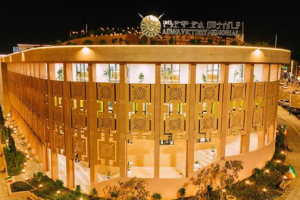BY MEHARI BEYENE
Many stories about Africa in the media still follow the “if it bleeds it leads” trail – even when written by African journalists for an African audience. This was a common point that emerged during four Africa No Filter closed roundtable discussions held in November 2020.
Africa No Filter convened 25 senior media practitioners from Ethiopia, Kenya, Namibia, Nigeria, South Africa and Uganda, Tanzania – including foreign correspondents and senior African journalists and editors, under Chatham House Rules for the discussions.
Talking points included: The ways African stories are framed in African media outlets, the types of stories prioritized, constraints on reporting on Africa and how the negative stereotypes of the continent can be shifted through the media.
News sources impact what story is told and how it is told Hard news stories such as politics, elections, and crisis in Africa dominate African news pages. For various reasons such as the financial constraints on retaining foreign correspondents, participants said they primarily rely on wire news agencies such as Reuters and AP to source African news.
A key point raised in the first session was: “One of the main topics being left out of the narrative is change: change on the continent, in countries and how it is being brought about by the youth.”
Western coverage on Africa is geared towards western audiences who want the ‘typical’ surface African story such as famine and crisis. This feeds into negative stereotypes that paint Africa as a devastated continent lacking in agency.
Is Africa interested in Africa? Audiences do not necessarily share an interest in stories about other African countries and broader African stories unless these stories directly affect their lives. “An audience without an interest in outside news makes it harder to put out more continental news,” was a point raised in the third session.
Participants highlighted that Africans also have their own perceptions and stereotypes of other Africans and that crept into how journalists write 1 about other countries for their own audiences.
As a result, African stories are few and can be shallow and void of nuance. “African crisis sells, but when local media positively changes how they cover stories, broader African media will pick up on that trend,” said some participants in the third roundtable session.
Africa needs to invest in journalism Finance was highlighted as a common constraint to deeper news coverage of African stories. Most participants said their publications could not afford to send out journalists to other African countries nor assign journalists on the ground due to budget limitations.
Furthermore, a scaling down of newsrooms – that started way before COVID-19 impacted the industry – meant that while newsrooms made the difficult decision to cut back staff, they also cut back on print pages with African stories falling first. The digital revolution, where audiences are moving online to spaces, has destabilized many African newsrooms.
“This shift has made monetizing the media more challenging than the traditional advertising-driven platforms,” participants said in the third session. In the last session, a point raised was: “A challenge in covering the continent includes finding freelance talent outside of the main centers of Johannesburg, Lagos and Nairobi.”
Despite the constraints facing the journalism and media industry, participants said the industry needs to value its workers. They added that it would be important to equip freelance journalists on the continent, especially those in smaller countries that do not dominate Africa news pages like Kenya, Nigeria and South Africa do. In the fourth session, a participant asked: “What’s the Booker Prize of African journalism?” Another way to elevate the standard of journalism in Africa is to award good journalism, they said.
They pointed out that the continent needs to create its own unique awards to reward outstanding journalism in the country. In the second session, some participants said: “Good multimedia – video and photographs – would help to illustrate Africa stories and this was something participants said they struggled to access when getting continental news.” A way to support African storytelling would be to create repositories for stories and multimedia that African journalists could share with each other.
Some participants said the increased availability of news and multimedia that can be freely distributed among journalists could help prevent negative stereotypes of the continent as the media would have a wider range of stories to tell.
Many Editor level participants said the Africa No Filter roundtable discussions gave them the rare opportunity to not only meet but deliberate the state of African media. The roundtable discussions were a platform to share ideas and a way forward.
Most participants noted the negative impact of relying on hard news to tell African stories. They said Africa needed more nuanced coverage with an increased focus on human interest stories that highlight Africa in a new light such as that of innovation and agency.
“There are good things happening in African countries and that it is the local media’s responsibility to report on these occurrences first,” said participants in the third session. Most participants said they would publish high-quality feature content from across the continent if it is made available to them.
The Ethiopian Herald January 6/2021





